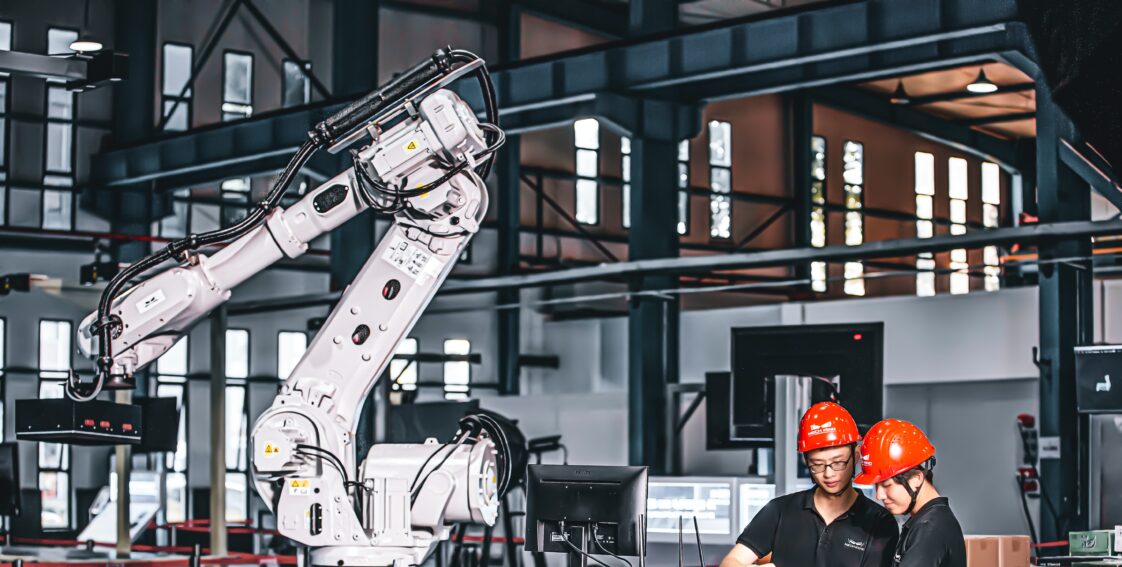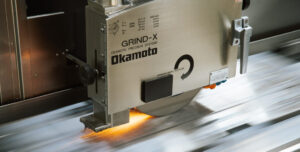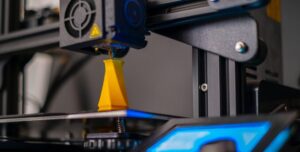REVOLUTIONIZING SHOPS ACROSS THE INDUSTRY

In the dynamic landscape of manufacturing, advanced manufacturing techniques are transforming traditional practices, bringing unprecedented precision, efficiency, and innovation. Tool and die shops, the cornerstone of the manufacturing industry, are increasingly leveraging these state-of-the-art technologies to enhance their operations and stay competitive. From computer-aided design (CAD) and computer-aided manufacturing (CAM) to automation, robotics, 3D printing, and more, advanced manufacturing techniques are reshaping the way tool and die shops operate.
AN OVERVIEW OF TOOL AND DIE MAKING
At the heart of manufacturing lies the process of tool and die making. This discipline involves creating precise, specialized tools, dies, and fixtures that shape, cut, and form materials for various applications. The tools and dies produced in these shops are instrumental in manufacturing parts for industries ranging from automotive and aerospace to electronics and medical devices.
Traditionally, tool and die making has relied on manual craftsmanship and conventional machining methods. However, with the advent of advanced manufacturing techniques, the sector is witnessing a paradigm shift. Today, tool and die shops are integrating cutting-edge technologies into their operations, combining the precision of traditional craftsmanship with the efficiency and speed of modern manufacturing.
CNC MACHINING: THE BACKBONE OF ADVANCED MANUFACTURING
Computer Numerical Control (CNC) machining is a critical element of advanced manufacturing techniques. It involves the use of computers to control machine tools, ensuring high precision and consistency in production. In tool and die shops, CNC machining plays a pivotal role in interpreting complex blueprints and creating intricate components.
CNC machines follow coded instructions to operate various tools, delivering an accurate and efficient production process. This level of automation enables rapid prototyping, reduced manual labor, and consistent output, making it an indispensable technology in modern tool and die making.
THE POWER OF AUTOMATION IN TOOL AND DIE MAKING
Automation is another cornerstone of advanced manufacturing techniques. By automating various aspects of the manufacturing process, tool and die shops can significantly enhance their productivity and efficiency. Automation reduces the chance of human error, minimizes downtime, and ensures a steady and reliable production flow.
In tool and die making, automation can be employed in various stages, from raw material handling and machining to inspection and packaging. By automating these processes, tool and die shops can streamline their operations, improve their output quality, and increase their overall competitiveness.
3D PRINTING: REVOLUTIONIZING TOOL AND DIE PRODUCTION
3D printing, or additive manufacturing, is one of the most transformative advanced manufacturing techniques. It allows for the layer-by-layer fabrication of complex tool and die geometries, opening up new possibilities in the manufacturing sector.
In tool and die making, 3D printing offers several advantages. It enables the production of intricate components with higher tolerances and lower costs. Furthermore, it allows for rapid prototyping and small series production, making it particularly valuable for tool and die shops looking to stay agile and responsive to market demands.
PRECISION ENGINEERING: ENSURING QUALITY AND ACCURACY
Precision engineering is a crucial aspect of advanced manufacturing techniques. It involves the design and creation of machines, parts, and structures with a high degree of accuracy. In tool and die making, precision engineering is paramount for ensuring the quality and functionality of the manufactured components.
Advanced manufacturing techniques, such as high-speed machining, laser cutting, and welding, enable tool and die shops to achieve highly precise and accurate results. These technologies allow for the creation of complex and intricate components, ensuring the highest quality and performance in various applications.
LATEST TRENDS IN TOOL AND DIE MAKING
In the ever-evolving field of manufacturing, staying ahead of the latest trends is key to maintaining a competitive edge. Tool and die shops are no exception, and the integration of advanced manufacturing techniques is driving several emerging trends in the sector.
One such trend is the growing use of artificial intelligence (AI) and machine learning in manufacturing processes. These technologies offer predictive capabilities, enabling tool and die shops to anticipate potential issues and optimize their operations accordingly.
Another trend is the increasing focus on sustainability in manufacturing. Advanced manufacturing techniques are enabling tool and die shops to reduce their energy consumption, minimize waste, and enhance the longevity of tools and dies.
Furthermore, the integration of Internet of Things (IoT) technology is transforming the way tool and die shops operate. IoT devices provide real-time data and insights, enabling improved monitoring, maintenance, and decision-making in the manufacturing process.
THE FUTURE OF TOOL AND DIE SHOPS WITH ADVANCED MANUFACTURING
The future of tool and die shops is closely tied to the continued evolution of advanced manufacturing techniques. As technological advancements continue to unfold, tool and die shops will need to adapt and innovate to stay competitive.
The continued integration of AI and machine learning, for instance, will enable tool and die shops to further optimize their operations, improve their precision, and reduce costs. Similarly, the increased use of IoT devices will provide tool and die shops with valuable real-time data, enabling them to make more informed decisions and enhance their efficiency.
Moreover, the ongoing focus on sustainability will drive tool and die shops to implement more environmentally friendly manufacturing processes. This will not only reduce their environmental footprint but also improve their reputation and competitiveness in the market.
In conclusion, the integration of advanced manufacturing techniques is revolutionizing tool and die shops, driving them towards increased efficiency, quality, and innovation. As these technologies continue to evolve, tool and die shops will need to stay abreast of the latest trends and developments, ensuring they remain at the forefront of the manufacturing industry.




